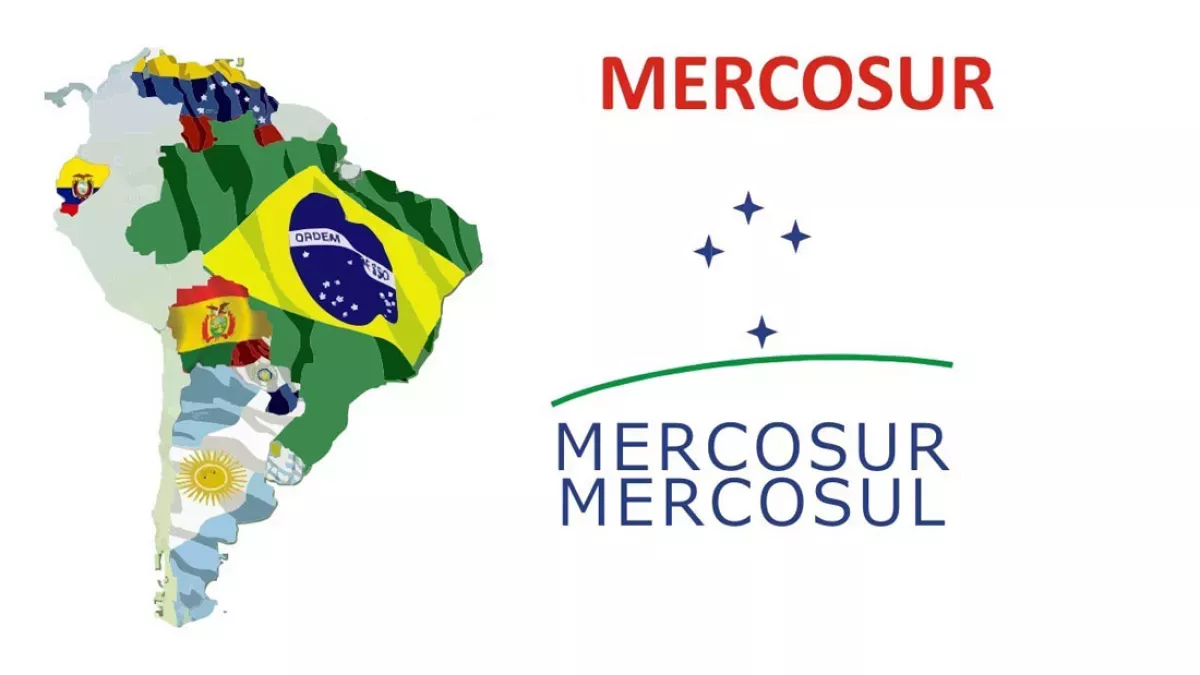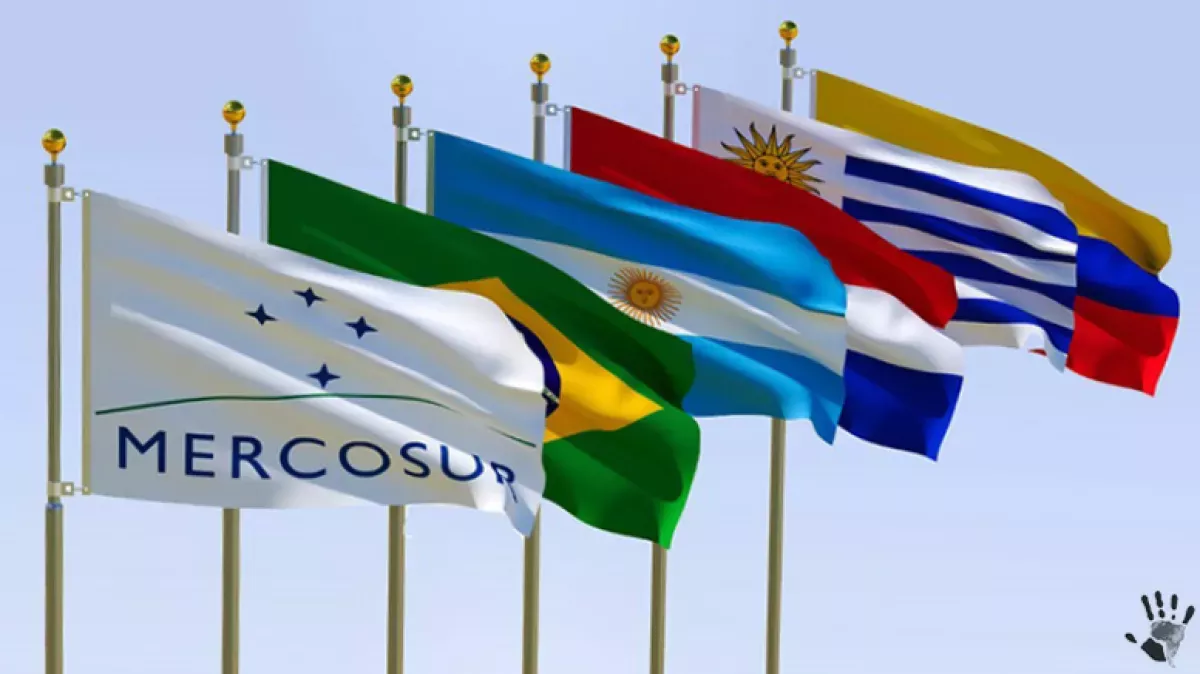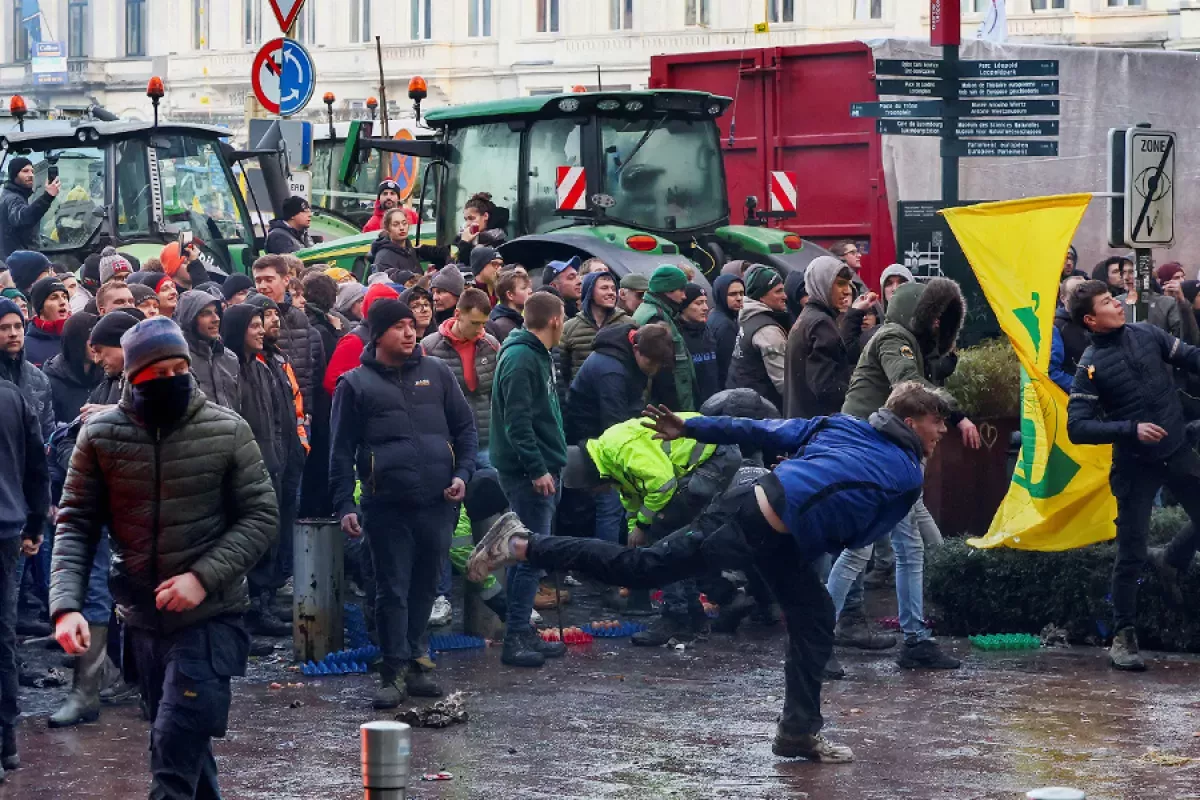EU-MERCOSUR trade deal sparks tension New World vs Old World
The EU has signed trade deal with South American countries in the interest of big corporations. Will this spark farmers' uprising in Europe?
On December 6, European Commission President Ursula von der Leyen concluded free trade negotiations with the Mercosur countries. However, not everyone in Europe is welcoming this global agreement.
Meat for Cars
The agreement between the EU and the Mercosur countries ("Southern Common Market") was finalized in Montevideo on December 6. Following this, farmers in several EU member states announced readiness for mass protests, with demonstrations already beginning in France.
At first glance, the EU-Mercosur agreement appears to be a tremendous economic benefit.
The "Southern Common Market" currently includes Brazil, Argentina, Paraguay, Uruguay, and Bolivia. Additionally, Chile, Colombia, Ecuador, Guyana, Peru, and Suriname are associated members of this trade bloc. In 2016, socialist Venezuela left Mercosur. However, the agreement between 27 EU member states and the "Southern Common Market" creates the biggest free trade zone on the planet, encompassing 780 million people.
Under the deal, 90 per cent of customs duties are set to be eliminated, and annual trade turnover between the two continents could reach up to 40-45 billion euros ($42-47 billion).

The agreement benefits not only meat, sugar, soy, rice, and honey producers from South America but also European corporations. Export duties will be removed not only on cars, chemicals, and pharmaceuticals from Europe but also on European chocolate, wine, cookies, cheese, as well as alcoholic and non-alcoholic beverages.
The agreement provides Europeans with access to 270 million new consumers and is expected to boost the EU's GDP by 15 billion euros ($15.7 billion). Given the current challenging economic situation in Europe, this represents a significant increase.
The EU is also lacking in essential minerals, a concern that has recently been raised in Brussels. Europe is in dire need of lithium, copper, iron, cobalt, and graphite from the South American continent. The natural resources of the South American continent are of particular interest to local corporations, given the shift towards "green" energy and electric vehicles. EU High Representative for Foreign Affairs and Security Policy Kaja Kallas believes that, otherwise, South America's natural resources will fall into the hands of Europe's main competitor – China.
The Prolonged Mercosur saga
The discussions surrounding this global agreement have been ongoing since the end of the last century – starting in 1999. The process, which has lasted a quarter of a century, has been so dramatic that it could serve as the basis for a TV series. Negotiations were halted in 2004 but resumed again in 2010. During that period, the agreement was projected to increase Paraguay's GDP by 10 per cent, Uruguay's by 2.1 per cent, Brazil's by 1.5 per cent, Argentina's by 0.5 per cent, and the EU's by 0.1 per cent.
However, the deal faced opposition from several EU member states, including France, Italy, Belgium, Austria, Romania, Cyprus, Finland, Greece, Hungary, Luxembourg, Lithuania, Portugal, Slovakia, and Slovenia. In 2019, the EU and Mercosur countries finally reached an agreement on the text of the deal, but it has not been ratified yet. Notably, the agreement with the "Southern Common Market" was at the time a clear challenge to the protectionist policy of US President Donald Trump. So, who is opposing this deal today, and why?
First and foremost, the deal with Mercosur has sparked outrage among European farmers. For instance, beef imports from Argentina could potentially devastate thousands of small farms in Europe. Farmers argue that while Brussels enforces strict environmental and social standards on their products, these regulations are not followed in Latin America. They accuse their overseas competitors of using GMO feed, growth hormones, antibiotics, pesticides. Whether with steroids or without, Argentina boasts unique natural conditions for large-scale cattle and dairy farming – the country has vast areas with abundant feed, numerous water sources, a moderate warm climate.
In 2023, Argentina accounted for 9 per cent of global beef trade and 7 per cent of processed beef products. In Europe, however, livestock volumes have been steadily declining for the seventh consecutive year. According to forecasts, the EU's cattle population is expected to decrease further in 2024, from 75.705 million heads in 2022 to 74.5 million. As for beef production, it was projected to drop from 23.3 million tons in 2022 to 22.3 million tons in 2024, a decline of one million tons.
The reasons for the decline are varied – lack of adequate government support, high energy prices, labour shortages, new viruses, and strict environmental regulations. The expansion of meat import quotas, including nearly 100,000 tons of beef from Mercosur, will undoubtedly worsen the situation for European producers.

At the same time, meat and other agricultural products from South America will enter the EU at lower prices, leading European farmers to accuse their counterparts of dumping. Moreover, the Mercosur agreement has been criticised from both environmental and human rights perspectives. Previously, 340 non-governmental organisations (NGOs), including Greenpeace and Friends of the Earth, signed a letter opposing the deal. In their view, big agricultural exports to the EU markets will lead to intensified farming in South America, which will, in turn, increase environmental pressures. Specifically, this will exacerbate the deforestation of the famous Amazon forests, which are already under threat.
The destruction of the Amazon rainforest, according to public organisations, is accompanied by violence and the killing of indigenous activists who oppose the destruction of their natural habitats. In 2023, 196 environmental activists were killed worldwide, with more than 70 per cent of them in Latin America. The majority of these victims were indigenous people. Currently, France is the most vocal opponent of the Mercosur agreement. The government is under significant pressure from the farming movement.
One of the main demands of the agricultural unions, which organised big protests in France in January 2024, is the abandonment of the deal with the "Southern Common Market." Similar protests by farmers took place in Germany, Italy, Poland, and the Netherlands. French Prime Minister Michel Barnier, who has been dismissed, has recently told Ursula von der Leyen during a meeting that the agreement, in its current form, is unacceptable for France.
In total, around 600 MEPs and senators of various ranks are opposed to the current deal with the "Southern Common Market." However, the stance of governments varies. In addition to France, Austria, Poland, and Italy are also critical of the agreement in its current form. Overall, the governments of these countries, including France, are not opposed to a free trade area with Mercosur but are insisting on the introduction of additional environmental, sanitary, and other restrictions. Meanwhile, Germany and Spain are actively promoting the agreement with the "Southern Common Market," and it seems that other EU member states are not against it either.
The issue is that Germany desperately needs new markets. Its automotive industry is severely struggling due to a deep recession and intense competition from China. Sales in South America could serve as a "lifeline" for German industrial corporations. Currently, Mercosur imposes high tariffs on many goods, such as 35 per cent on automobiles and 18 per cent on auto parts. Perhaps, food companies and big retail chains from the EU are also interested in the cheap products from South America. At the same time, the losses in Germany's own agriculture due to South American exports will be less critical than for France.
The agricultural sector accounts for 0.8 per cent of Germany's economy, while in France, it makes up 1.9 per cent, more than twice as high. Germany has the biggest national economy in the EU, and the European Commission is led by German Christian Democrat Ursula von der Leyen. The agreement with Mercosur still needs to be approved by the European Council and the European Parliament. At this point, opponents of the agreement are uncertain about its outcome. To block the deal in the Council, a group of at least four countries is needed. Among the current four critics, Italy might be the weak link.
Given Ursula von der Leyen's good relationship with Prime Minister Giorgia Meloni, it is possible that Italy will vote in favor of the agreement in the European Council. Experts also believe that significant challenges may arise in the European Parliament when attempting to reject the current agreement with Mercosur. Unlike the previous years, amidst the ongoing economic crisis in the EU, big corporations are more aggressively pushing their interests. After all, savings on export duties could help European corporations retain 4 billion euros ($4.2 billion). "Rural Revolution" Due to the escalating situation surrounding Mercosur, Ursula von der Leyen even refrained from attending the ceremonial reopening of Notre-Dame Cathedral on December 7.
There are significant reasons for this decision—French farmers had already promised to hold rally.

Farmers in France are known for their strong protests, and demonstrations against the new global agreement have been ongoing in the country since November. Agricultural unions have not yet resorted to blocking roads, as they did earlier this year, and initially limited their actions to pickets. However, gradually, the farmers' actions have become more radical. On December 13, several hundred activists from the National Federation of Agricultural Holders' Unions and French Young Farmers trade unions arrived in the centre of the Burgundy city of Franche-Comté on tractors, scattering hay, tires, and manure in front of the local administration building.
Protesters also threw manure at the House of Europe and the offices of several MPs, and set hay on fire in the Republic Square. The French approach their protests creatively, with 577 manure-filled boxes—one for each MP—two of which were specifically addressed to Macron and von der Leyen. In addition to the demand for the cancellation of another globalist agreement, farmers are calling for the reinstatement of state support, which was delayed following the resignation of the government. Farmers from Belgium, Italy, and Poland have also pledged to join the protests in the near future. It seems that the agricultural unions' movement is increasingly alarming the EU elite.
Media outlets are starting to claim that farmers in Europe are losing their minds as they argue that agrochemical companies, food producers, and supermarkets are deceiving and exploiting them. Farmers are being portrayed as the old and stagnant subsidized sector of the EU. Meanwhile, the new trade agreement is being defended, with claims that the new quotas represent only a small percentage of the total volume of European agricultural production. For example, winemakers and cheesemakers are expected to thrive in the South American market under the new deal. However, there is increasing concern in European media about the potential for a rural revolution.
Nothing new is happening. The survival of farmers, like the national interests of individual countries, has always been willingly sacrificed by globalists for the profits of transnational corporations. However, there is one new aspect to the situation – in the EU, France is increasingly being disregarded as it loses its influence. This concerns not only the country's president and government, entangled in political intrigues and foreign adventures, but also the lives of ordinary French citizens.








